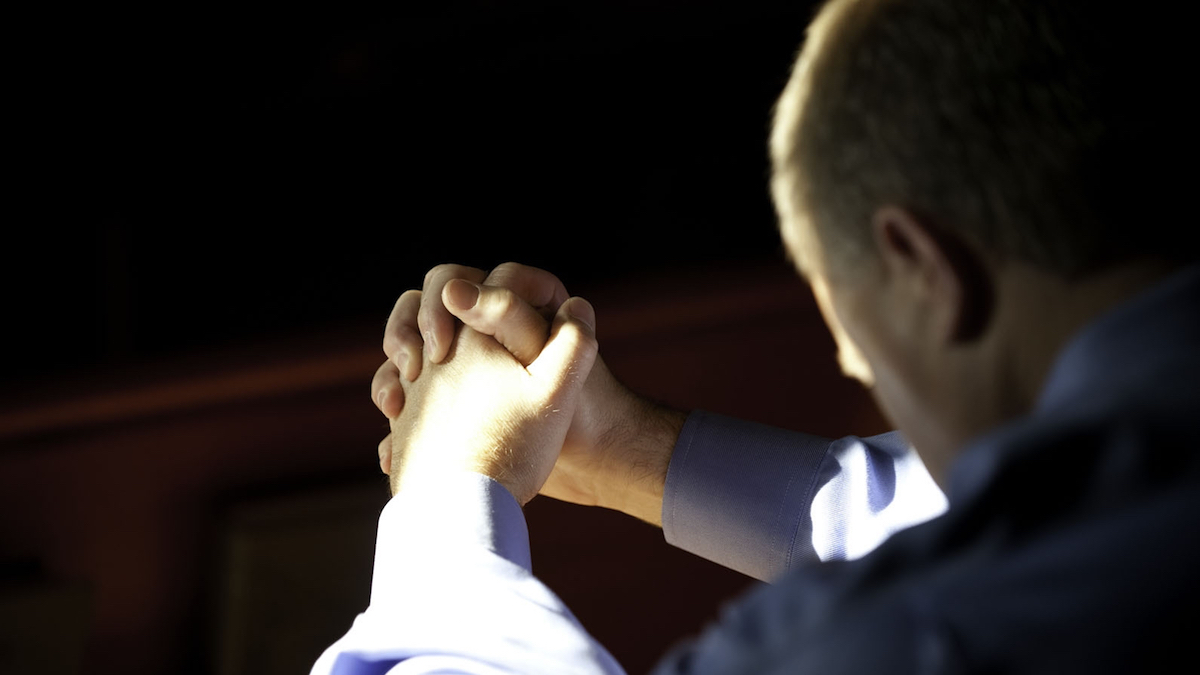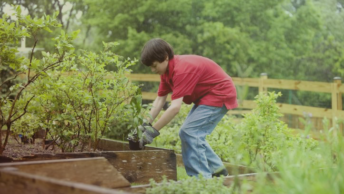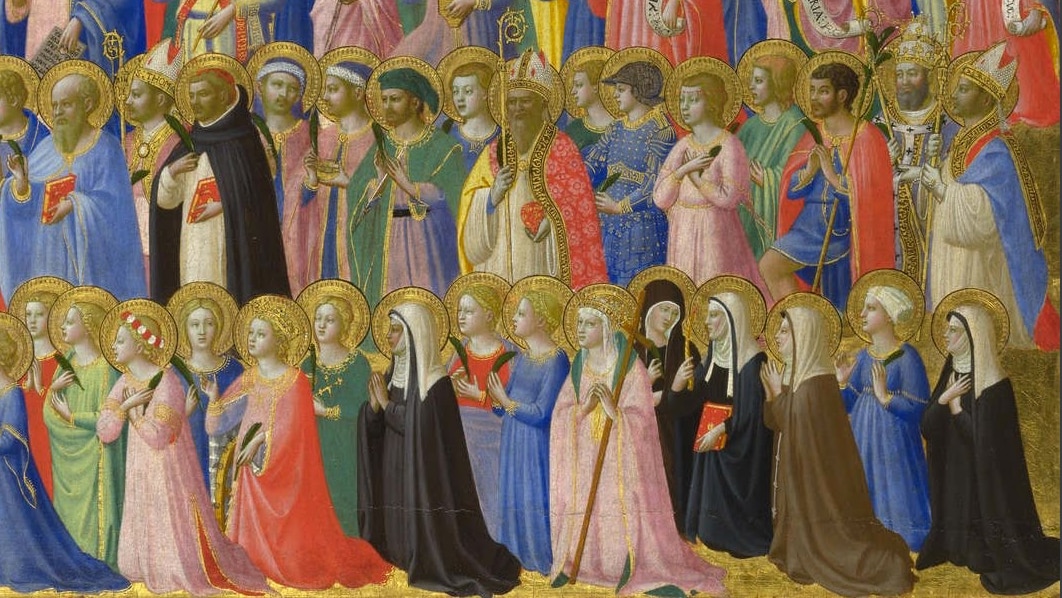Nothing is known about the life of Zacchaeus following his conversion, but there’s a legend that after his encounter with Christ, every single morning he would get up early and leave his house for about half-an-hour, before returning home for his simple breakfast. His wife was extremely curious about this strange behavior, but rather than directly asking Zacchaeus what was going on, she decided to follow him in secret one morning. To her surprise, her husband took a bucket to the town well—something no self-respecting man would ever do, because that was women’s work—filled it with water, and then carried it outside the town gates and to a large sycamore tree alongside the road. Setting the bucket down, Zacchaeus cleared away any debris that had accumulated at the foot of the tree, then gently poured the water around the roots, caressed the tree, and stood transfixed for a few moments. At this point his wife stepped forward and asked, “Husband, why are you here?” Without a moment’s hesitation, Zacchaeus answered, “Because this is where I found Christ” (Paul J. Wharton, Stories and Parables for Preachers and Teachers, p. 34).
According to the legend, the conversion of Zacchaeus was genuine, and made a lasting difference in his life—thereby validating Our Lord’s words in the Gospel of Luke (19:1-10) that “salvation has come to this house.” The gift of salvation is supposed to have a similar effect in us; if we truly know and love Jesus, and genuinely appreciate all He does for us, our lives should express our gratitude and our desire that others also come to share in eternal life— a blessing none of us can ever earn or merit, but can only receive as Our Lord’s free gift. We don’t have to create a shrine at the place where we were baptized, or where we first heard the Gospel, or where we had our first truly personal encounter with Jesus; rather, our entire lives should be an expression of praise and thanks. Without Jesus, life has no meaning, no value, and no hope—but with Him, we are truly alive, and truly blessed.
Everything God does is good—and our happiness lies in appreciating, cooperating with, and imitating this truth. The Book of Wisdom not only praises the beauty of creation, but an even more beautiful sign of God’s goodness: namely, His willingness to forgive sinners and restore them to grace. As St. Paul tells us (2 Thes 1:11-2:2), the Lord wants to “make us worthy of His calling,” so that the Name of Jesus may be glorified in us. However, God respects our free will; only if we choose to open our hearts to Him will His grace begin the process of transforming us into a new creation, capable of achieving our intended destiny of eternal life. Zacchaeus, of course, is one who enthusiastically accepted the Lord’s invitation. He was actively searching for Jesus, he went to extra lengths to be able to see him, and when called by the Lord, he responded immediately and wholeheartedly—even to the point of publicly admitting his sinfulness and promising to give away half his possessions to the poor.
Zacchaeus made restitution for his sins: he repaid, four times over, everything he had illegally confiscated or extorted by abusing his authority as Jericho’s chief tax collector. This theme of restitution is very timely and important as we enter into the month of November, for it’s in this month—more than any other—that the Church remembers and prays for the suffering souls in purgatory, who are now making restitution for their sins and offenses against God’s justice. The Church’s teaching on purgatory is clear and unchanging; it is a state of existence after death where we are cleansed of the harmful and disfiguring effects of our sins. Every sin, no matter how small, harms our souls and diminishes their created beauty. As soon as we sincerely repent, we are immediately forgiven—but the harmful effects of our sins remain. Every good deed we perform as an act of genuine faith and love heals some of the damage we’ve done to ourselves—but if we’ve not completed this process before we die, it will have to continue in purgatory, for as Scripture teaches, nothing impure may enter into God’s presence [cf. Rev. 21:27]. Depending on the number and seriousness of our sins, our experience of purgatory may be relatively easy and short, or quite lengthy and painful; that’s why it’s a very good idea for us to do penance for our sins while still on earth, while we can freely and easily do so.
The Church also teaches that it is a very wise and holy thing to remember the countless multitudes of persons who now suffer in purgatory. They have the blessing of knowing that they will certainly enter Heaven one day, but their current inability to see God, their one true desire and the object of their longing, causes them intense loss and pain. The holy souls in purgatory can do nothing to help themselves; they must rely upon the mercy of God, and upon our prayers, Masses, and sacrifices. The Lord in His gracious generosity allows us to help not only our own deceased loved ones, but any and all those who are undergoing spiritual cleansing and healing, whether personally known to us or not. Our prayers and sacrifices on their behalf are immensely valuable and important, bringing them great relief, helping them enter Heaven as soon as possible, and assuring us their eternal gratitude and their constant prayers on our behalf. Moreover, Jesus Himself looks with great favor on those who treat the suffering souls with compassion— and through this type of devotion, we may very well end up lessening or eliminating our own experience of making restitution for our sins in purgatory. According to a traditional Catholic teaching, we here on earth are part of the Church Militant. The souls in purgatory comprise the Church Suffering—and all of us, through the mercy of God, will one day become part of the Church Triumphant in Heaven.
When Zacchaeus met Jesus, he said all the right things; what truly mattered, however, was that the Lord was able to look into his heart and see he really meant them. We have every reason to believe Zacchaeus followed through on his promises to make restitution and truly changed his life, and therefore now lives in heavenly glory. Our situation may be different from his, but our goal is the same—and only by opening our hearts to God’s grace as fully as we can will we achieve it.








